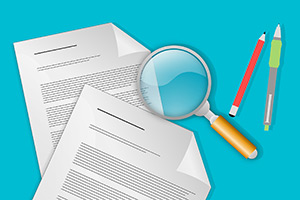My Comedy Career: Elf Lyons
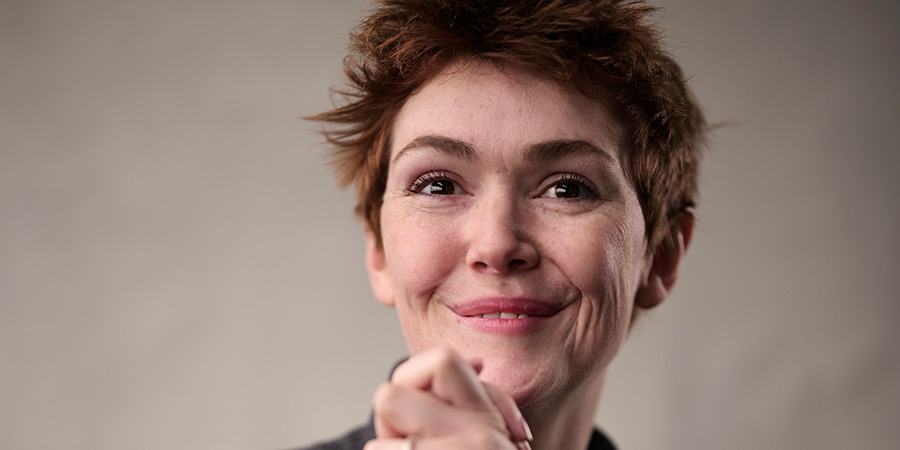
Comedy performer Elf Lyons gives some really thoughtful and honest answers to our questions here:
Tell us what you do in your job.
Hello. My name is Elf. I make live comedy theatre shows and perform comedy - I started in stand-up comedy and now predominantly work in the vein of alternative comedy / spectacle shows / multi-genre work. I direct artists and help them find their show, develop their work and or help write jokes for their shows. I teach workshops on clowning, bouffon and show structure in the UK and beyond and I lecture and teach at different universities and drama schools.
I predominantly work with other artists or independent venues and pretty much tour most of the year.
The misconception that I frequently get is that, with everything I do, it is in order to work towards doing something else. So, after a good Edinburgh Fringe, people will say "I bet you're expecting some big things to happen from this" or, after a very big gig, they say "Well who knows what will happen now!". Nothing will. It won't. This is it. This is the prize. I don't have any particular interest in pandering for industry or what is in fashion as I don't want to queue for a nightclub that already has a limited guest list. Just start your own nightclub.
How did you first get involved in the comedy industry?
I suppose the first time I saw the comedy industry and realised it was an industry and not this ephemeral art form was in 2008. I was a volunteer at the Forest Fringe at the Forest Café for two weeks at the Edinburgh Fringe and saw so many shows and really immersed myself in the world. I was 18. Completely green. Completely naïve and got blown away by how narrative shows worked.
I am very grateful I was so out of the loop about the 'industry' until much later in my career - I only really learnt about PR/Industry and 'awards' in 2017 and by that point I was much more confident because I had finally found my friends at L'Ecole Gaulier the year before.
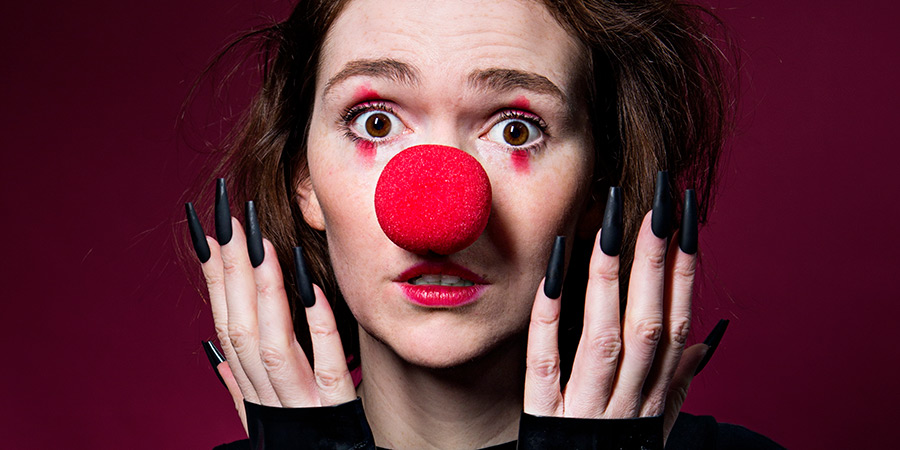
What key skills do you need to be able to do your job well?
Work hard.
To quote my parents: Just get on with it.
No one is asking you to do this. No one is sitting there going "Oh god I wish we had more clowns". People are desperate for you to stop what you are doing and do something else. So, if you want to do it, get on with it and accept that 90% of the time you won't get the reaction your ego decided you deserve you get.
It is all well and good being the most original, the funniest, the most talented and daring performer. But if you can't balance that with being consistent, easy to work with, transparent, reliable, and good at emails - you are going to flounder.
I remember someone telling me that an artist needs to be talented, easy to work with and reliable and you only need two of the three to be successful. I think that says it all.
Also, yes, it is hard. Why should it be easy? And yes, it is unfair. It's shit and, unfortunately, I can't offer any resolution to that other than do your best, work hard and then make sure you hold the ladder down for everyone else to climb up alongside you, pay it forward and don't be a cunt.
Also, it's not your business what people say about you behind your back. People aren't going to like you; they will make misconceptions and they will be nasty. And that's on them. Let them. They don't make your work. You do. Don't let anyone else's opinion of you be the reason why you choose to hold yourself back.
You should never look at other artists and their work to get jealous, you should only ever look at your friends and other artists around you to get inspired.
What has been your biggest career achievement to date?
Honestly, I am just proud of all the work. I am so proud of myself that I am still doing it and that the work means something to me and to audiences.
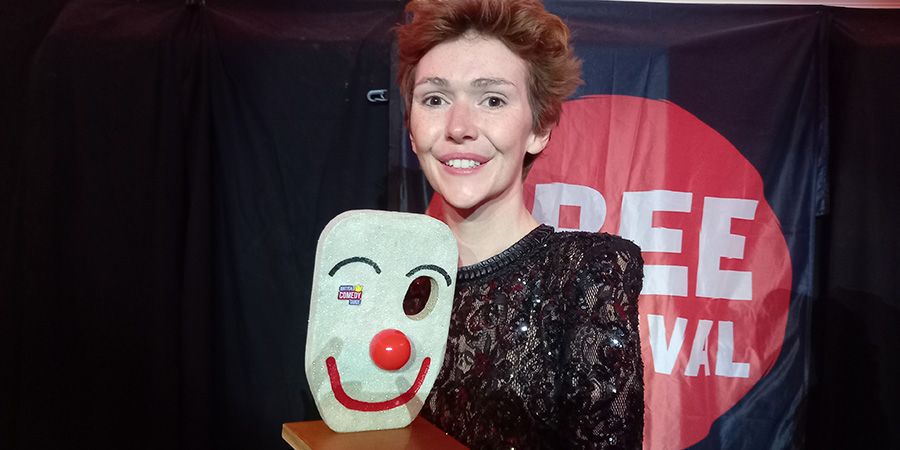
2024 Edinburgh doing Horses will always be a precious memory because I think it is very rare to have a fringe like that. Being awarded the Comedians' Choice Award is very precious to me - the fact that other artists voted for me, that they liked my work - that's cool. I never thought that would happen and it did. It was just really lovely, and I will never undermine that month, because most people never get a time like that in their career ever and I did and that is very fucking lucky and, also, I am so proud that it happened doing a show that, let's be frank, will never ever get me on Live At The Apollo.
Did it result in any meetings with industry or telly? Absolutely not. But what I wanted to get from it - a continued live tour and more respect for my work - I did get, and I am very happy.
Part of us is always that child sat on the bench waiting to be asked to dance at the school disco. I don't think I'll ever lose that feeling of being little and not having any friends. Or, when I was at boarding school, the long weekends of no one being about and feeling very alone. So those moments in your career when that feeling is alleviated, and you feel part of the team - that is precious. And I wish they weren't.
And what has been the biggest challenge/disappointment?
I did a TV show for Dave. I was so excited and thought it would be the game-changer to prove that I can appeal to mainstream audiences and that my comedy does work. In the live record, it went great. I won't overhype it - I'm usually immensely critical - but I was categorically very happy with how it went. My agent was thrilled. Also, my dad - my most honest critic - was in the audience, and he was tearful because he was so proud of what he'd seen me do.
Then I watched the final show on telly, and I was devastated. The way it had been edited didn't represent the act at all. It wasn't funny. It was a 2 out of 5. My dad rang me and said, "What did you think?". I told him. He agreed. He said, "It was like watching a football game live and seeing your team achieve a double hat trick, and then on Match Of The Day they show two throw-ins and a corner."
I think at that moment I realised that live performance is where I feel safe, because it relies on me. If it flops, it's because I did it. I wasn't good enough. But the fact that my work - my capabilities as a comedian - were edited so much, by someone else I don't know, who doesn't necessarily have the same investment in my work as I do, was enough for me to realise I don't want to play with that risk for the rest of my life.
I suppose you have to be more considered, because in comedy your product is you. Your brand is you. And when someone you don't know is in charge of how that comes across, you have to be honest about what it is you really want to get from being in those situations.
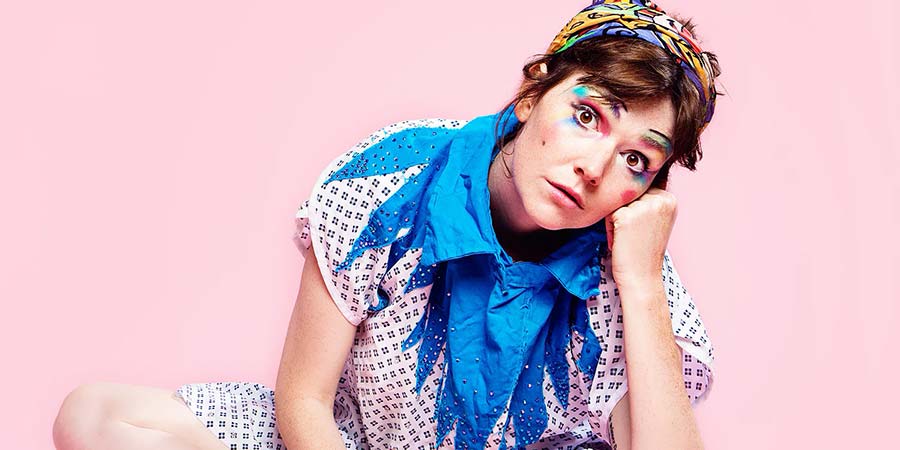
Talk us through a typical day.
So at the moment I am on tour, so it's pretty much wake up, work on train, work on another train, arrive, tech, eat, show, Premier Inn, work in bed, sleep. Wake up at 7am, do admin in bed, do admin on train, get on another train, arrive, tech, eat, show. In Australia whilst I toured five cities in four months I was also doing Australia-based work during the day, and then after the show I would return home and do UK-based work at night, due to the time difference. The Australia tour was essentially four Edinburgh festivals back-to-back with teaching and paid work daytime.
On my days off I then split my days directing artists in the morning or afternoon in three-hour chunks.
When I have an hour off, I swim and joined a gym that is directly 10 minutes walk to the rehearsal studio I usually work at - so if I have a spare 40 minutes I run there, swim, and then return to work.
I rarely ever gig. I prefer having evenings free to either see other people's shows, see friends or be with my family, or do a workshop.
When I have free time, I go home to my parents and I don't do anything, or if I want a holiday I pick a country I've not been to, I reach out to an arts venue there, I organise a workshop, a WIP of a show and then I fly out. That way, I make money whilst I am there, and the trip becomes tax deductible. I find it hard to holiday. To be honest, my doctor of my parents has to tell me when to do it.
If I have time off, I will try and book a course or reach out to an artist to work with to get better at what I do.
How, if at all, do you aim for a good work-life balance?
For me, it's important to be upfront that this is just my job - even though it feels like now it is all I do - my brain has fun in other spaces. I'm so thankful that I do not live and breathe comedy. This is my job.
I imagine my life in six categories: my family, my friends, my health & fitness, my interests, my job, and me on my own. They all take equal weight in my life. You meet people for whom comedy is literally everything, and - no disrespect - but I can't live like that. So much of this job often relies on other people valuing what you do. And I've seen how some of these people treat FOH [front of house staff] at the Fringe. I don't want to rely on people like that - people who forget other people are people.
With regard to a good work-life balance - luckily, I love my work, so when I am on tour I try to enjoy every element as much as possible.
A rule I have when deciding what I want to do is this: I pick another comedian on a similar trajectory to me and imagine us both taking different paths. It helps me work out what I'd be happy with having and not having.
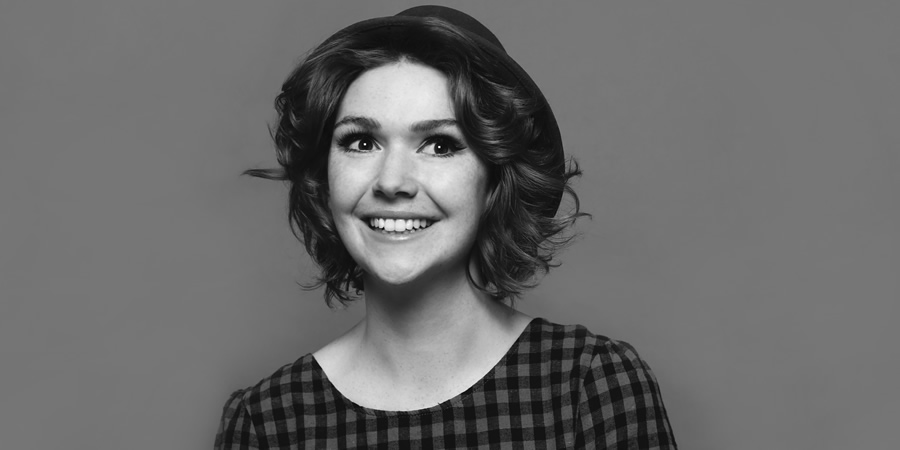
For example, I pick a comic my age (similar style of work) and imagine them in five years' time. They have a child and a family and they're still doing comedy, but perhaps not as much because of work like balance. Then I imagine myself with "the dream": Taskmaster, a worldwide tour, lots of critical acclaim - but no kid, living independently, everything on my terms. Am I jealous of the other comic? Or do I feel relief that my life is different? Then I swap it around with me with the family and them with the "dream". How do I feel when those two lives are switched?
I pick this as an over-the-top, provocative example - because you can obviously achieve both simultaneously - but it helps me be upfront about what I'm happy to gain and what I'm happy to lose. Every choice has its gains and its sacrifices. For me, what I've learnt through this is that I really want a family more than being a well-loved TV personality. I'm 33 years-old with a myriad of health issues, so looking at the game plan now, I have to be honest about the decisions I make to have the life I want.
I'm also in a privileged position in that I've gained so many awards and nominations that many people wouldn't dare to dream of, I can be more particular. I've earned my stripes as an artist. I know how to land the plane.
Tell us a trick/secret/resource that you use to make your job quicker/easier.
As much as I am going to get shit for this, I am going to be honest: AI has helped me so much. As someone with dyslexia and dyscalculia and a real issue with conflict, I have found using AI to help analyse documents, contracts and proofread my emails has basically saved me hours and a lot of mental energy so I can spend so much more time writing and being creative. I used to have to give two days to go through everything, and now it takes me a few hours in bed here and there or on the train to sort it all out.
How are you paid?
There is never a regular month. I get paid as and when and in truth that means I pretty much work seven days a week. I wish people understood how little money you make from touring. If I didn't teach and mentor other artists, quite simply I would be in a very bad place.
I tour because I love it but if I showed you the budgets for how the festival seasons worked you would be flummoxed. What makes it manageable is that I get to go to places I've never been to before. I really believe in my work and like showing it to people and I really love the teams who I get to work with. But, crucially, I am doing something wrong.
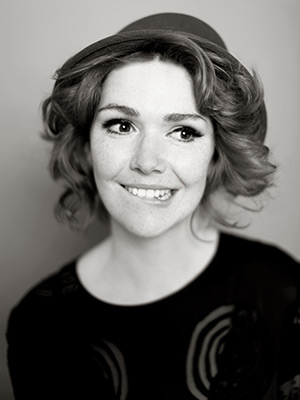
If you could change one thing about the comedy industry, what would it be?
The comedy industry often holds itself with the attitude that they think their Bergheim. The industry sometimes still seems just as cliquey as I remember the Bristol Revs being when I was a student and I remember how shit that made 90% of people feel, and I don't really care about that. I wish everyone the best, but the reality is we are all going to die and none of this matters.
Truthfully, I think the cliqueness is the bit I dislike.
Secondly, I wish there was more honesty in how comedy gigs are booked and programmed. You have a few people who think they are the big dogs who love to be the gatekeepers.
Thirdly - bullying, I think there needs to be more done to deal with how bullying is dealt with and how certain key players can be seen to push other people out of gigs, opportunities or simply feeling part of the industry.
The industry is totally self-monitoring which can be great and essentially it exists as lots of different independent eco systems that occasionally overlap - the clearest example being Edinburgh. I wish it had more monitoring on the safety of how things are booked. I think you would then see a lot of inequality.
Also, I wish the industry was less London centric. Agents and producers had an opportunity during Covid to discover so much more UK talent due to the access to online comedy gigs. They didn't, so you still have a big divide and the pressure on acts from more regional areas to have to relocate to the city in order to get noticed.
One positive from technology is that it has equalled the playing field in that there is more opportunity to be discovered due to reels and clips - an act from a regional area with good smart sets and clips online can suddenly become viral and get the attention they deserved. That's great.
What tips would you give for anyone looking to work in your area of the industry?
Get good at reels and online content. Or be upfront and clear with what it is you want - do you want, 1) financial success, 2) loyal audience, 3) a live lifestyle, 4) stability. Be clear with what it is because it will help you strategise more honestly with what route you want to go.
I haven't adapted to reels and online stuff and, because of that, it will impede aspects of my job and make my career a little harder now. My friends who are brilliant at it have given lots of brilliant, phenomenal advice - and the truth is - I do not want to follow it, as being on my phone makes me ill. Any time I am on my phone I want to reduce, so I just want to step away from that angle. I've done a few reels, but it just makes me a little sick.
But trust your gut, and crucially, have fun, and make stuff that matters to you.
For the latest updates from Elf visit elflyons.com
This article is provided for free as part of BCG Pro.
Subscribe now for exclusive features, insight, learning materials, opportunities and other services for comedy creators.


